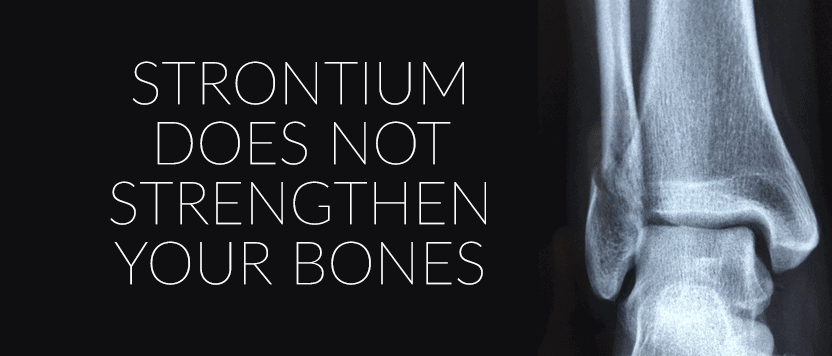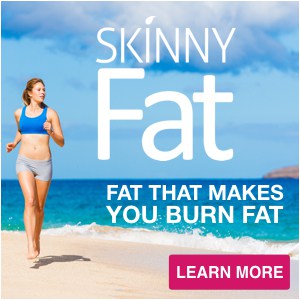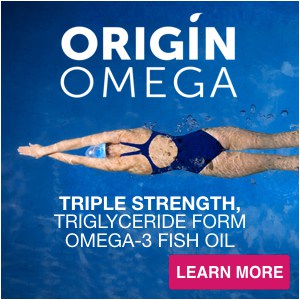True or False?: A bigger, denser bone is a stronger bone.
At first glance, this statement seems completely reasonable. In fact, it is true most of the time. But further research has taught us a cautionary tale. If you ever have considered taking supplemental bone support containing strontium, read on to learn more about what works, what doesn’t, and what is safe.
Why Was Strontium Supplementation Considered At All?
The 15th most prevalent element on Earth, strontium was discovered in the Scottish town of Strontian in 1790 and is used today to make television tubes and magnets. The average person’s blood contains about 350 mg of circulating strontium. Man-made fallout spreads strontium-90, a radioactive isotope. Research evaluating strontium-90 exposure made note of bone, which takes up the mineral. A trace amount of normal (non-radioactive) strontium has been considered both safe and necessary due to its presence in bone and its ability to increase bone mineral density on tests.
Dangerous at High Doses
However, years of strontium ranelate prescriptions as the European drug Protelos have not helped as hoped. Strontium ranelate was considered safe and shown to reduce fracture risk before going to market, but its bone-building effects were less beneficial than expected. Moreover, unpleasant and unsafe side effects like nausea, diarrhea, headaches, fainting, blood clots, thinking difficulty, liver inflammation, reduced red blood cells, and even heart attacks and seizures, reduced quality of life for many using this drug. Protelos was pulled from the market last fall due to declining use in light of cardiovascular concerns- the risk was just too great. Because there is not enough research to vouch for the safety or efficacy of other strontium salts, we do not recommend strontium supplementation.
Not So Strong-tium
But doesn’t supplemental strontium strengthen weak bone? The jury is in: and the answer is, it does not!. In a 2016 clinical trial in Osteoporosis International of elderly patients with wrist fractures, supplemental strontium (alongside calcium and vitamin D) did not significantly improve healing within a few months of injury. However, most research indicating that strontium strengthens bones has referenced its positive effect on bone mineral density in patients with osteoporosis, not a single fracture.
Consider that quantity does not guarantee quality. Bone naturally contains minerals such as calcium, magnesium, and phosphorus. The mineral strontium has a similar electric charge to calcium and can take its place in bone. The more mineral in bone matrix, the more dense the bone. Strontium increases bone density, especially the thickness of the outer, or cortical, layer of bone. While this increases bone’s compressive strength, it does not improve and can actually lower bone’s tensile strength- the ability to elongate and flex under pressure. Lacking elasticity, bone becomes brittle like a dried up tree branch. Your fracture risk is higher with more brittle bone. Moreover, strontium is heavier than calcium, so lots of strontium in bone artificially increases your score on a bone mineral density test without improving tensile strength.
Strontium supplementation can also compromise your recovery from osteoporosis by blocking your absorption of other minerals. Magnesium and calcium not only compete for absorption with each other, but also with many other minerals of similar charge (like iron… and strontium!). So while we do not recommend supplementing with strontium, we do recommend that you make smart dietary, lifestyle, and supplement choices to support your bones as much as they support you!
3 Steps to Building Better Bone
Part of our nutrition story has been Mira’s success in building her bone density, a success we cultivated by following the research. Build better bone by ensuring adequate bone-boosting nutrients in food and supplements and aligning your lifestyle with the science. Consider this quick list of bone-boosting tips, and check out our book Rebuild Your Bones to dive deep into healing with our 12-week osteoporosis protocol!
STEP ONE – FOOD: Choose foods that contain certain vitamins, minerals, and fats that are critical for bone health.
- Choose foods high in calcium and magnesium. For most of us, a bone building whole foods diet will include foods higher in calcium and magnesium such as dark leafy greens (only cooked), dairy, and proteins (such as meat, chicken, eggs and seafood). Gently cook plant foods and chew well to improve mineral absorption, while avoiding excessive raw plant foods.
- Avoid foods that deplete calcium. Raw vegetables, grains, legumes, nuts, and seeds contain phytates and/or oxalates that bind calcium, magnesium, and other minerals, preventing their absorption. Cooking, soaking, and sprouting can break some of these bonds.
- Avoid sugar and wheat. Processing dietary sugar can deplete your calcium, magnesium, chromium, and copper. Glucose also competes with vitamin C for entry into your cells. Wheat contains lectins that can compromise your intestinal lining and phytates that bind minerals.
- Choose fatty fish. Fatty fish, like salmon, mackerel, or sardines, contains several nutrients that support bone health, including calcium, magnesium, omega-3 fatty acids, and vitamin D.
STEP TWO – LIFESTYLE: Reduce stress, exercise wisely, and be aware of the chemicals you expose yourself to.
- Avoid a sedentary life, as bone remodels based on the stresses put on it. Even a lower-impact exercise like walking will improve bone density compared to no exercise at all.
- Join the resistance. Strength (or resistance) training, especially those using osteogenic loading like OsteoStrong) puts short-term stresses on bone that encourage it to remodel to meet the challenge– and also builds muscle. If you use a supplement containing calcium, aim to take it 30 minutes before load-bearing exercise.
- Have a Heart. Cardiovascular exercise is important for balanced fitness and a healthy mood, but do not over-exercise. 20 to 30 minute sessions are great, but too much cardio depletes nutrients and can compromise your goals. Learn in Rebuild Your Bones about how to optimize your exercise with less cardio, more strength, and, often, less effort, if you have become a cardio queen!
- Mind your Medications. Avoid medications that reduce mineral absorption, especially H2 inhibitors, antacids, or laxatives with bisacodyl. Supplementation with some minerals such as iron or magnesium will reduce calcium absorption. Medication challenges are not just indirect, either: we have spent a lot of time on our blog and in our book discussing the effects of bone-focused medications and their side effects. Obviously, if these medications actually worked, we wouldn’t be here writing this.
- Lessen your exposure to xenoestrogens. Avoid these estrogen-like hormone disruptors in food, plastic, beauty, bath, and household products. Examples include BPA, phthalates, parabens, and most pesticides. Choose organic foods and avoid BPA-lined cans. Avoid “fragrance” on labels and instead choose products scented with essential oils. Avoid plastic-wrapped food, especially warming foods in plastic. Choose organic foods to limit pesticide, antibiotic, and growth hormone exposure. Disrupting your estrogen metabolism with these foreign compounds can not only bring on early menopause, but also wreak havoc with your bone density.
- Find some ease to balance your effort. While some acutely stressful exercise can motivate bone growth, most stress negatively affects bone health. Under chronic stress, your stomach acid production slows, reducing absorption of all minerals and protein. Furthermore, stress depletes B vitamins, some of which are needed for bone growth. For instance, those with folate/B12 insufficiency resulting in high homocysteine have been found to have reduced bone mineral density, changes in the inner scaffolding of bone, and increased bone fragility. Stress also depletes vitamin C, which helps to make collagen (providing elasticity) and crosslink bone.
STEP THREE – SUPPLEMENTATION: Don’t get lured in by ineffective megadoses of vitamins- choose optimal micronutrient levels to support balanced bone without compromising safety.
- Calcium is safe to supplement. Calcium insufficiency and deficiency are associated with bone loss and bone pain, muscle cramps, and an irregular heartbeat. Calcium supplementation is safe and effective if you respect your body’s limit of absorbing 500-600 mg of calcium at once and do not over-supplement- and be mindful to choose a highly absorbable form of calcium such as calcium citrate, calcium potassium phosphate citrate, or calcium malate. Avoid algae-based calcium products for their poor absorption and high heavy metal reports.
- Magnesium is safe to supplement- away from calcium. Magnesium insufficiency and deficiency is associated with muscle cramps, an irregular heartbeat, insomnia, high blood pressure, bone loss, and diabetes. Magnesium helps build your bones, cope with stress, and even protects your cells- bone included- against the excitotoxic damage caused by daily electromagnetic radiation from your cellphone or laptop. In fact, it appears that all the enzymes that metabolize vitamin D require magnesium, and low magnesium has been shown to decrease production of vitamin D’s active form, 1,25(OH)2D3 (calcitriol). Because magnesium competes with calcium for absorption, we do not recommend supplementing them at the same time- this is why our nutreince multivitamin separates calcium and magnesium into morning and evening doses!
- Vitamin D3 improves intestinal calcium absorption and slightly increases magnesium absorption. Because vitamin D increases the protein calbindin that helps you absorb calcium, eating or supplementing them together is ideal. Avoid supplementing vitamin D at the same time as vitamin K2 because they compete for absorption.
- Vitamin K2 gets calcium out of arteries and into bones. It isn’t enough to just get calcium into the body. You must complex that calcium in bone matrix. Enter vitamin K2, which helps remove calcium in your arteries and put it in your bones, reducing risk of heart attack while strengthening your skeleton. We spare no expense to bring you the K2 delta version in nutreince– the most shelf stable and effective version of vitamin K2 on the market!
- Vitamin E reduces bone e-rosion. Research suggests the delta-tocotrienol form of vitamin E maintains the surface of bone and reduces bone resorption. Choose a supplement with more than just the alpha-tocopherol form, such as our multivitamin.
- Omega-3 fatty acids improve bone mineral density. In a perfect world, you could regularly eat clean, omega-3 rich seafood free of heavy metals and loaded with bone-mineral-boosting DHA. But our modern world does not always allow for such. Supplemental fish oil can provide both quality and convenience without compromising nutrition, is far more effective in the beneficial triglyceride form, and should contain 1500 – 4000 mg of EPA and DHA (far more than many fish, krill, or algae supplements provide) if you want the metabolic benefits. Check out our Origin Omega.
- Protein Power. You need all the essential amino acids to build quality bone. While many people will choose a plant-based protein powder for personal reasons, we recommend whey protein for its multiple bone-building benefits. If choosing whey protein, choose an organic, non- GMO, grass- fed, single- ingredient whey protein concentrate that has also been tested to prove that it is low in heavy metals. If choosing plant protein, find a combination of organic non-soy plant proteins (to supply a full spectrum of amino acids) that are sprouted to reduce antinutrients; make sure the protein has been tested to prove that it is low in heavy metals. Our POWER protein powders are available in both whey and plant varieties.
Supplements are supplemental to (not a replacement for) a healthy, well-rounded diet. This is why we made nutreince– to supply the right amount of the right nutrients in the right way to round out our nutrient-deficient diets and micronutrient-depleting lifestyles. Note that these are not the only important nutrients that build healthy bone- but these are major, unignorable players! Deepen your understanding the role of all your micronutrients and more in Rebuild Your Bones!
The Final Word on Strontium Supplementation
With so much you can do every day to support your bone health, we recommend you avoid strontium supplementation. Strontium supplementation is more likely to reduce your bone quality than strengthen it, with side effects ranging from unpleasant to life-threatening. The win-win? Every intervention listed above can improve your quality of life in more than one way, and in our latest book, we outline forty healing habits that you can make part of your bone-building lifestyle today! So go ahead, take a relaxing bath, curl up with a life-changing copy of Rebuild Your Bones, indulge in a delicious plate of wild-caught salmon and roasted vegetables, and meet your micronutrient needs with greater ease through smart supplementation. Bon(e) appetit!











